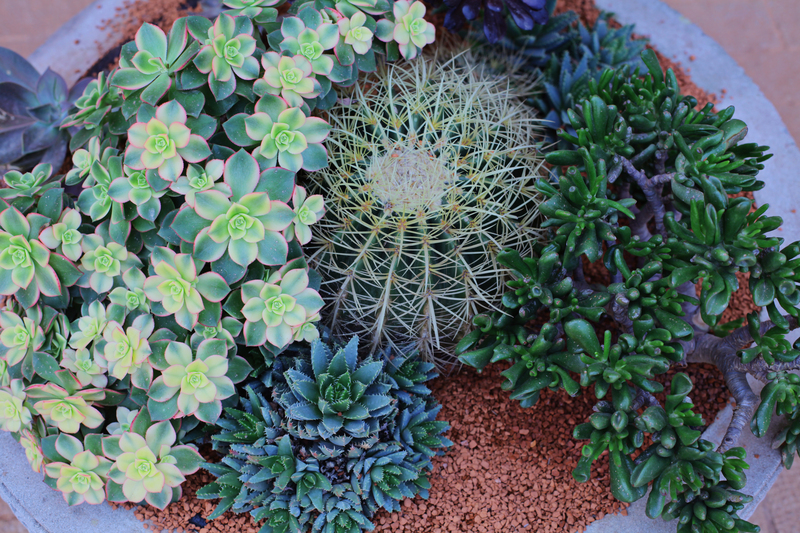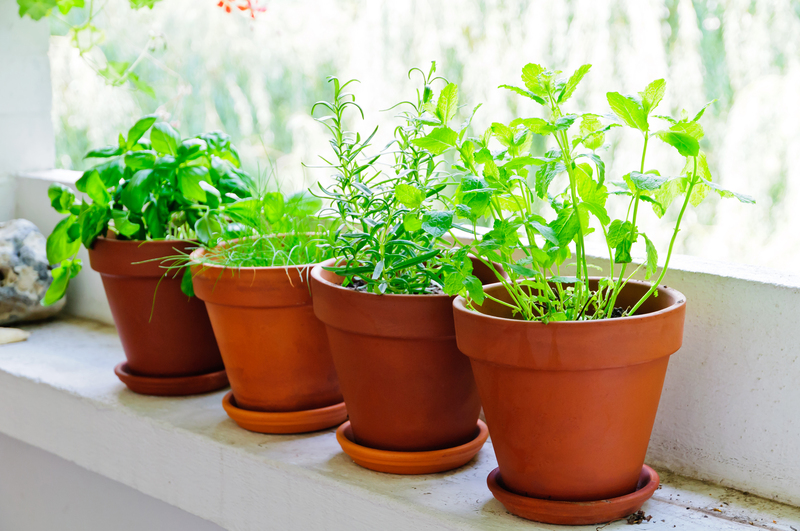Embrace Serenity with These Zen Garden Ideas for Your Yard
Posted on 30/08/2025
Embrace Serenity with These Zen Garden Ideas for Your Yard
Are you seeking tranquility and peace in your outdoor space? Embracing Zen garden concepts can transform your yard into a sanctuary where relaxation and mindfulness blossom. Drawing from ancient Japanese traditions, these peaceful garden designs encourage meditative practices and invite a harmonious connection with nature. In this comprehensive guide, discover how to create a Zen-inspired garden that captivates the senses and elevates both your landscape and your spirit.
What Is a Zen Garden?
A Zen garden, also called a Japanese rock garden or karesansui, is a minimalist landscape style featuring rock arrangements, gravel or sand, and carefully selected plants. These gardens reflect the principles of Zen Buddhism, emphasizing simplicity, balance, and contemplation. Traditionally, these spaces are designed for meditation and introspective reflection.
- Minimalism: Open spaces, uncluttered layouts, subdued color palettes
- Symbolism: Rocks may symbolize mountains or islands; sand and gravel represent water
- Harmony: Each element is strategically placed to evoke a sense of order and peace
- Asymmetry: Unlike Western gardens, Zen landscapes embrace asymmetrical balance

Benefits of Zen Gardens in Your Yard
Creating a Zen garden in your yard offers tangible health and wellness benefits--beyond aesthetic appeal. Here are some perks you can look forward to:
- Stress Reduction: The serene setting encourages mindfulness and relaxation
- Low Maintenance: Minimalist plant choices and materials require less upkeep
- Enhanced Curb Appeal: A Zen-inspired yard adds unique beauty and value to your home
- Increased Outdoor Use: Invite meditation, yoga, or quiet moments into your daily routine
- Connection with Nature: The design fosters appreciation for natural elements and cyclic change
Zen Garden Ideas: Transforming Your Yard into a Peaceful Retreat
Ready to transform your outdoor space? Explore these inspiring Zen garden ideas for your yard that blend tradition with modern flair:
1. Start Small with a Mini Zen Corner
Not every yard needs a full-scale overhaul. Create a compact, intimate Zen nook using a small gravel area, a few stones, and a decorative bench. This is perfect for courtyards, patios, or even balconies. Let this be your personal oasis for meditation and mindful breathing.
- Choose a quiet corner with dappled sunlight
- Install a compact wooden or bamboo bench for sitting
- Add a carefully arranged stack of decorative stones, symbolizing mountains
- Surround the area with low-maintenance ferns or moss
2. Craft a Classic Raked Gravel Garden
A hallmark of the Japanese Zen garden is raked gravel, representing rippling water. Raking textures into the gravel is a contemplative activity--great for releasing stress.
- Spread a layer of fine, white or pale gray gravel across a flat area
- Position large flat rocks or boulders thoughtfully; odd numbers often look harmonious
- Use a wooden rake to form flowing lines, circles, and spirals
- Refresh the patterns after storms or whenever you need a meditative break
3. Incorporate a Dry Stream Bed
A dry stream bed, or kare-sansui, mimics the look of water carving its path through a landscape. This idea brings movement and flow to your Zen-style yard without requiring actual water.
- Outline a curving path with river rocks or pebbles
- Surround the stream with undulating mounds covered in moss or gravel
- Position occasional standing stones to create visual interest
- Add a Japanese maple or dwarf pine tree nearby to anchor the space
4. Add Meditation Seating
Purposeful seating is a key feature in any serene garden. Place minimalist wooden stools, stone benches, or even weather-resistant floor cushions in shaded zones.
- Face the seating toward the most peaceful view--perhaps your raked gravel or rock installation
- Flank the seating with bamboo screens or tall ornamental grasses for privacy
- Use natural, earthy materials like weathered wood, stone, or bamboo
5. Design a Rock Arrangement
Stones and boulders are philosophical anchors in a Zen-inspired garden. Choose rocks of varied shapes and sizes; group them in odd numbers for a natural look.
- Place taller stones at the back and smaller ones toward the front
- Partially bury stones to imitate ancient, weathered landscapes
- Add a few pebbles surrounding larger rocks to suggest flowing water or islands
- Enhance with gravel borders for clarity and calmness
6. Integrate a Bamboo Water Feature
For those seeking the soothing sound of running water, include a shishi-odoshi (bamboo fountain) or a simple pondless basin. Water evokes calm and helps mask urban noise.
- Install a small recirculating pump for ease of maintenance
- Feature natural stones and weathered bamboo as a spout
- Frame the fountain with shade-loving moss and ferns
7. Use Moss and Groundcovers
A lush carpet of moss or groundcover plants introduces softness and contrast against stone and gravel. Moss is symbolic of longevity and tranquility in Japanese gardens.
- Select shade-tolerant moss varieties, like sheet moss or rock cap moss
- Use creeping thyme, baby's tears, or low-growing sedums in sunny areas
- Plant between stepping stones or along dry stream beds
- Keep the look natural and let plants meander organically
8. Frame the Garden with Bamboo or Privacy Screens
Privacy is essential for immersion and meditation. Bamboo fencing or trellises are ideal for screening views and introducing vertical texture.
- Use living bamboo plants for a sustainable privacy hedge
- Install pre-fabricated bamboo screens along the garden's perimeter
- Combine with climbing vines or dwarf trees for layered interest
9. Illuminate with Subtle Lighting
Evening serenity can be enhanced with gentle, low-voltage landscape lighting. Highlight stones, pathways, or water features with warm LED lights or lanterns.
- Use solar stake lights or hidden fixtures for a soft, diffused ambiance
- Add traditional Japanese lanterns (toro) near pathways or seating areas
- Emphasize important focal points, such as a raked bed or stone cluster
10. Select Minimalist Plants for Texture and Color
Choose plants that reflect Zen garden design principles: simplicity, structure, and subdued color. Evergreens, ornamental grasses, and slow-growing species work best.
- Japanese maples, pines, and bamboo offer structure and color
- Azaleas and camellias introduce subtle seasonal blossoms
- Mondo grass or liriope creates linear accent borders
- Pachysandra, hostas, and ferns fill shaded recesses under trees
How to Design Your Zen Garden Yard: Step-by-Step Guide
Wondering how to embark on your Zen garden transformation? Here's a step-by-step blueprint to spark serenity in your outdoor sanctuary:
- Define Your Space: Survey your yard, determine the garden's location, and measure boundaries
- Plan Hardscape Elements: Sketch placement for rocks, gravel, water features, and seating
- Select Materials: Choose natural stones, quality gravel, and weather-resistant wood or bamboo
- Establish Flow: Arrange elements asymmetrically, using pathways to guide movement and create focal points
- Choose Plants Thoughtfully: Stick to a restrained plant palette with varied textures and heights
- Add Details: Lanterns, bamboo screens, and subtle lighting finish the look
- Maintain Simplicity: Regularly remove debris, refresh gravel raking, and lightly prune plants
Tips for Maintaining Zen and Peace in Your Garden Oasis
A Zen-style garden is easy to care for, but a few mindful habits help preserve its calm beauty:
- Minimal Plant Pruning: Avoid over-shaping; allow for organic forms
- Weed Control: Hand-weed gravel beds and moss carpets regularly
- Refresh Raked Patterns: Rake gravel designs after rain or heavy wind
- Inspect Water Features: Clean pumps and clear debris monthly
- Seasonal Touches: Adjust plantings, swap lanterns, or add new stones for renewed interest
Frequently Asked Questions about Zen Gardens
What materials are essential for a Zen-inspired garden?
Basic materials include fine gravel or sand, variously sized rocks and boulders, weathered wood or bamboo, and a minimal selection of plants such as moss, ferns, and evergreens.
Does a Zen garden need water elements?
No--traditional Zen gardens are dry landscapes (karesansui), representing water symbolically with raked gravel or stones. However, incorporating a water basin or bamboo fountain can introduce soothing sound and a touch of lushness if desired.
Can I add color to my Zen garden?
While the palette is typically subdued, subtle color from accent plants (e.g., Japanese maples, azaleas, camellias) can add seasonal vitality without disrupting the garden's tranquil balance.

Inspiration: Zen Garden Variations for Every Space
Urban Zen Gardens
Even city dwellers can embrace serenity with compact Zen gardens. Container plantings, tabletop sand gardens, and potted bamboo screens are perfect for balconies and courtyards.
Modern Zen Garden Designs
Modern interpretations may include geometric stone layouts, polished concrete elements, or minimalist water walls. The principles remain the same: simplicity, natural beauty, and calm.
Family-Friendly Zen Spaces
Introduce smooth pebbles, gentle stepping stones, and interactive raked beds where children can play quietly, exploring textures and patterns. These family zones seamlessly blend playfulness with meditative relaxation.
Conclusion: Embrace Tranquility in Your Outdoor Sanctuary
By incorporating Zen garden ideas into your yard, you create a peaceful oasis that nourishes the mind and soul. Whether you choose a classic raked gravel bed, a mossy hideaway, or a bamboo-bordered meditation zone, each element brings you closer to the rejuvenating serenity found in nature and ancient Japanese tradition.
So start planning your outdoor retreat today--embrace serenity with Zen garden design and rediscover the bliss of a tranquil, harmonious yard.
Let your Zen garden be not just a landscape, but a living sanctuary for contemplation, beauty, and peace.
Latest Posts
Transform Dark Corners: Vibrant Evergreen Climbers for Shade
Conquer Garden Weeds: Three Proven Techniques for Control
Transform Your Outdoor Space with Fabulous Seating Arrangements
Revitalizing Waste to Enrich Our Earth's Soul
Step into the World of Gardening with 9 Must-Know Tips for Beginners

